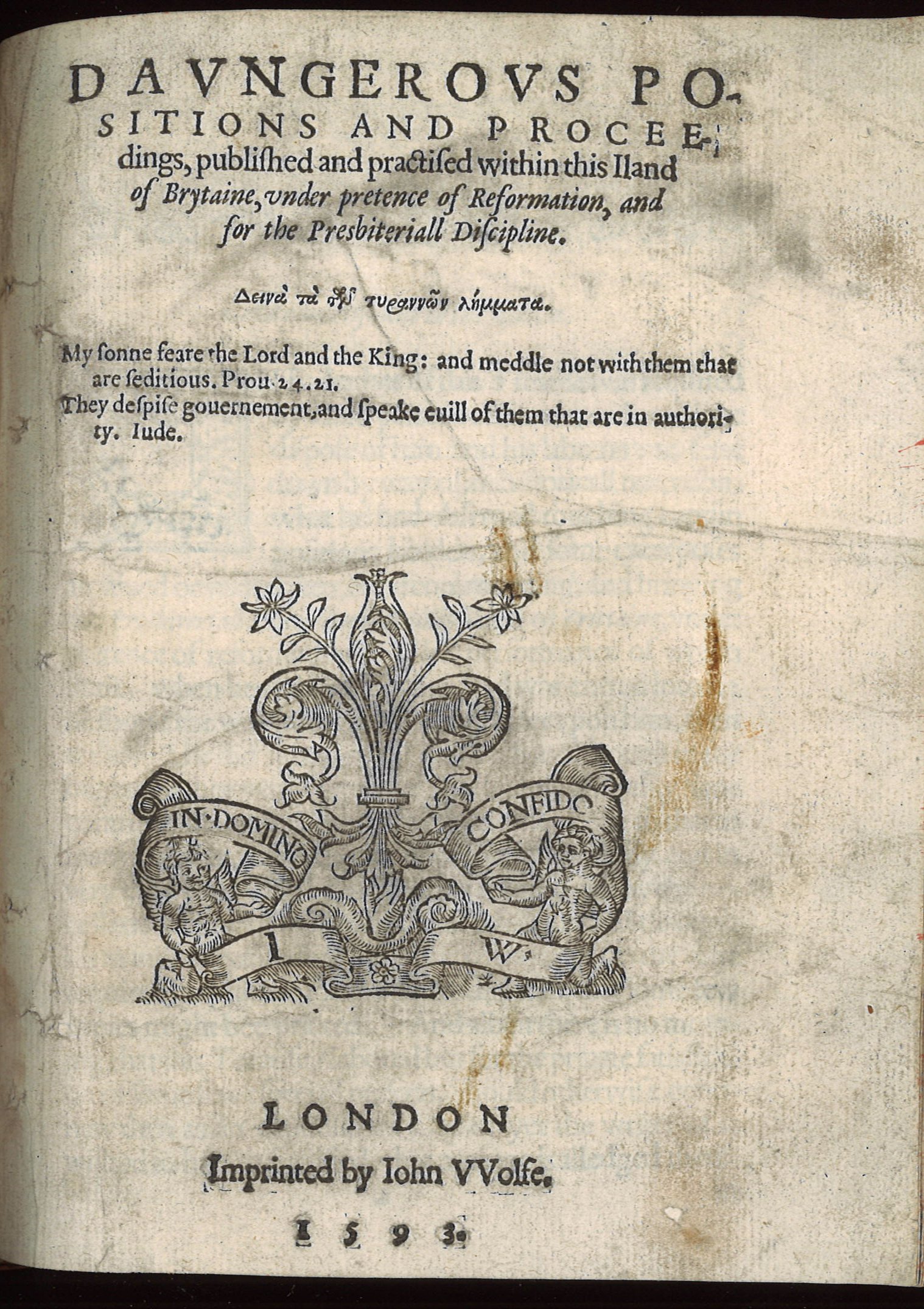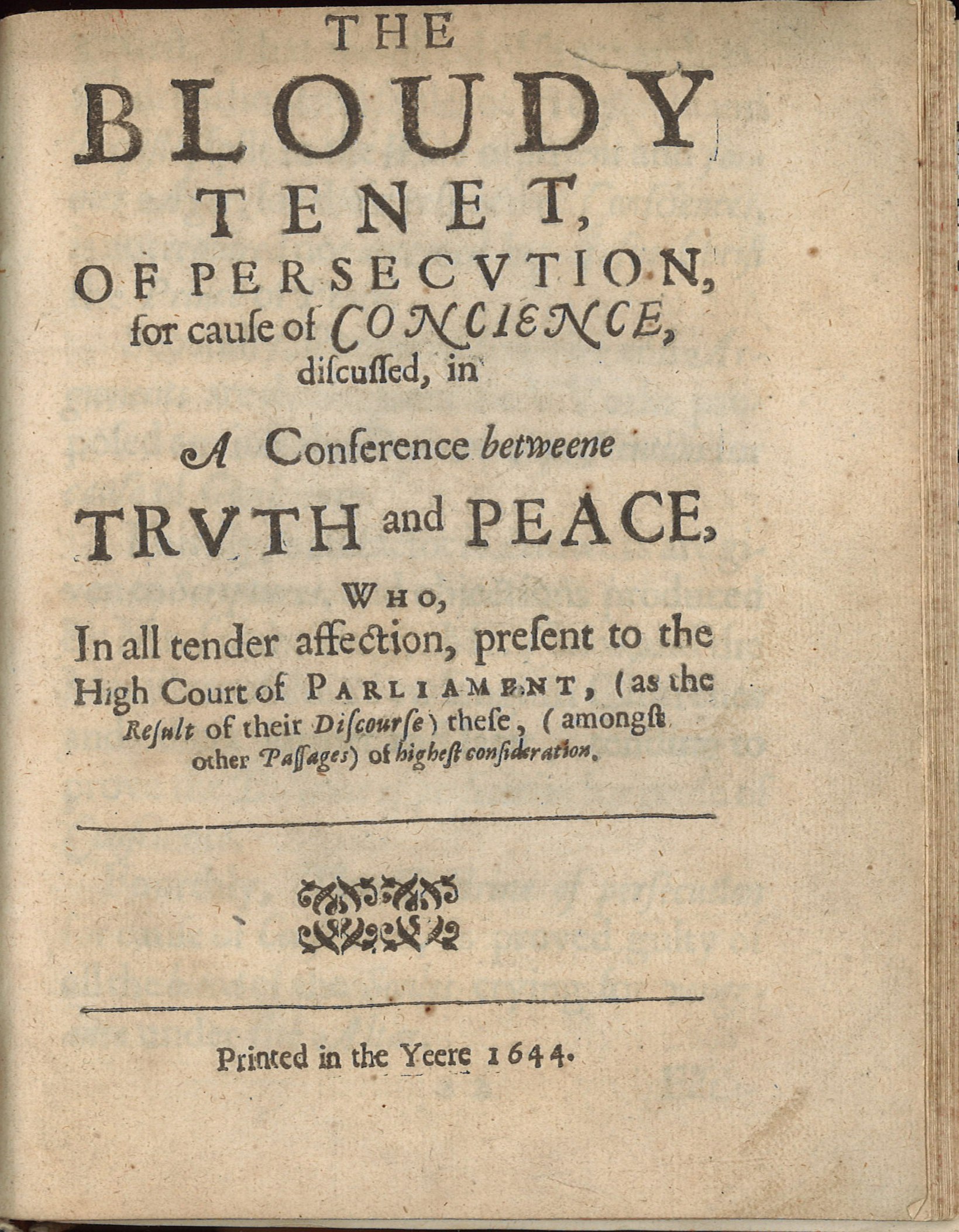While most of the Society’s library materials start with 1636, the date of the founding of the Providence, the Printed Collection has a stellar set of London Imprints that pre-date the colony. These were mostly acquired from the George L. Shepley Library in 1938 and from an 1891 donation by Daniel Berkeley Updike of Wilkin Updike, Esq.’s Library—two collecting giants of Americana and printing history.
While the pre-colonial imprints may at first seem out of place here, the titles and topics reveal an unparalleled description of the environment in England from which our own Roger Williams evolved his ideas and then fled persecution.

This is an anti-Presbyterian tract rejecting the new disciplinarian model of church government and attributed to Dr. Richard Bancroft who eventually became the Bishop of London and then Archbishop of Canterbury from 1604-1610.
The printer John Wolfe (1548?–1601) was jailed twice and repeatedly had his printing materials seized by authorities for his controversial opinions and for the titles he chose to print. He was an outspoken advocate of printing privileges, which was a hotly debated issue of the Elizabethan era.
The battle of who was allowed to print and what they could print continued to the 1640’s in which Roger Williams and his printer (and eventual Providence resident) Gregory Dexter were deeply embroiled.
The risks of printing controversial literature continued as attested to in that neither Dexter nor Williams signed his fiery plea for religious tolerance, The bloudy tenent, of persecution, for cause of conscience, discussed, in a conference betweene Truth and Peace. :VVho, in all tender affection, present to the hight court of Parliament, (as the result of their discourse) these, (amongst other passages) of highest consideration. ([London: s.n.], 1644).
The first issue read the “Bloudy Tenet” and most copies were ordered burned by the then ruling Presbyterian Party in England. Had Williams not been on his way back to Rhode Island he may have been burned along with them.

~Phoebe Bean, Printed Collection Librarian

It’s so hard for me to get my mind around that seventeenth-century mindset — but I’ll keep trying! Mid-1700s thought I intuitively get, perhaps even better than I understand the twenty-first century. What happened to so radically change the worldview? The Great Awakening’s an easy answer, but it’s a little late and perhaps more effect than cause.